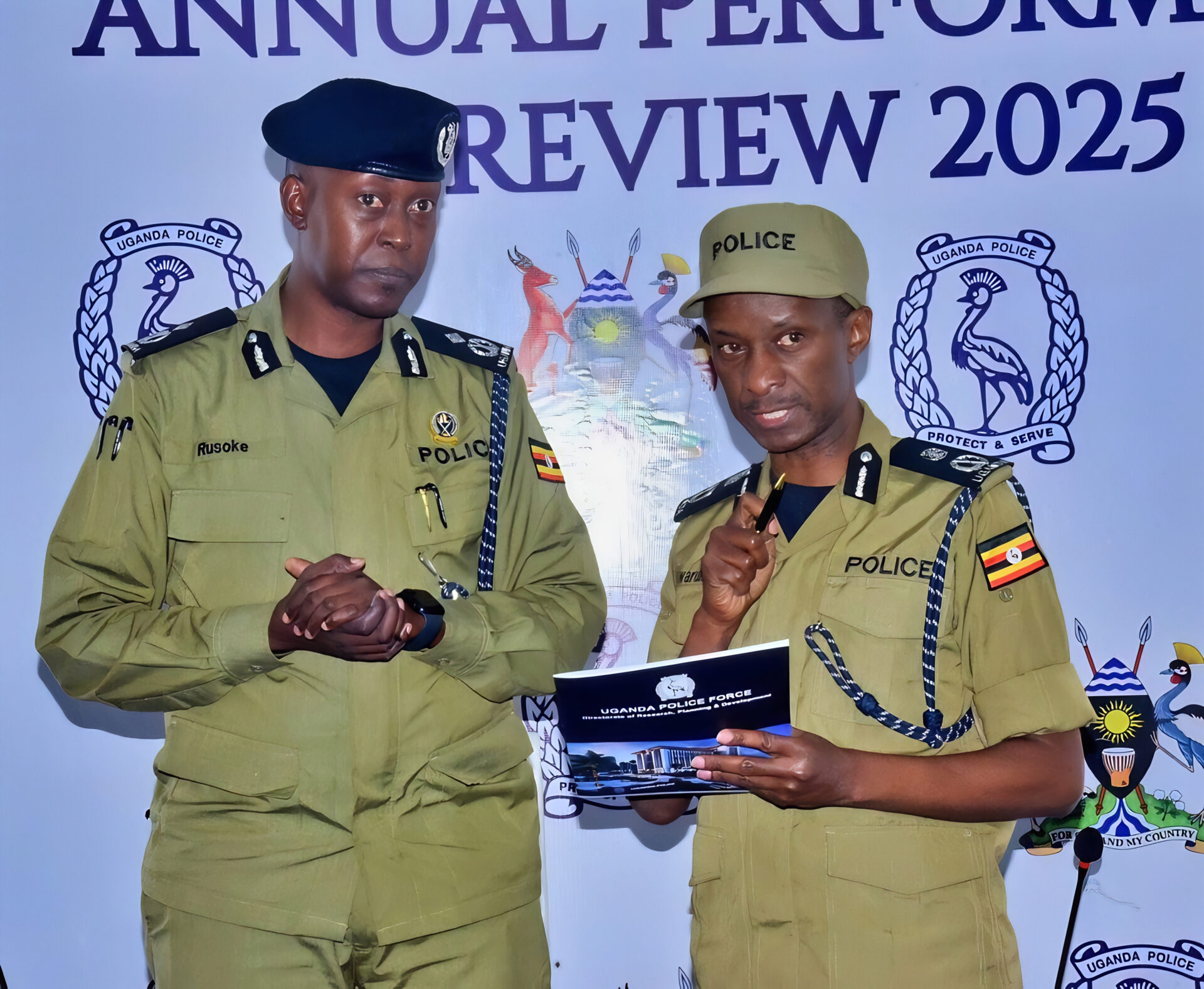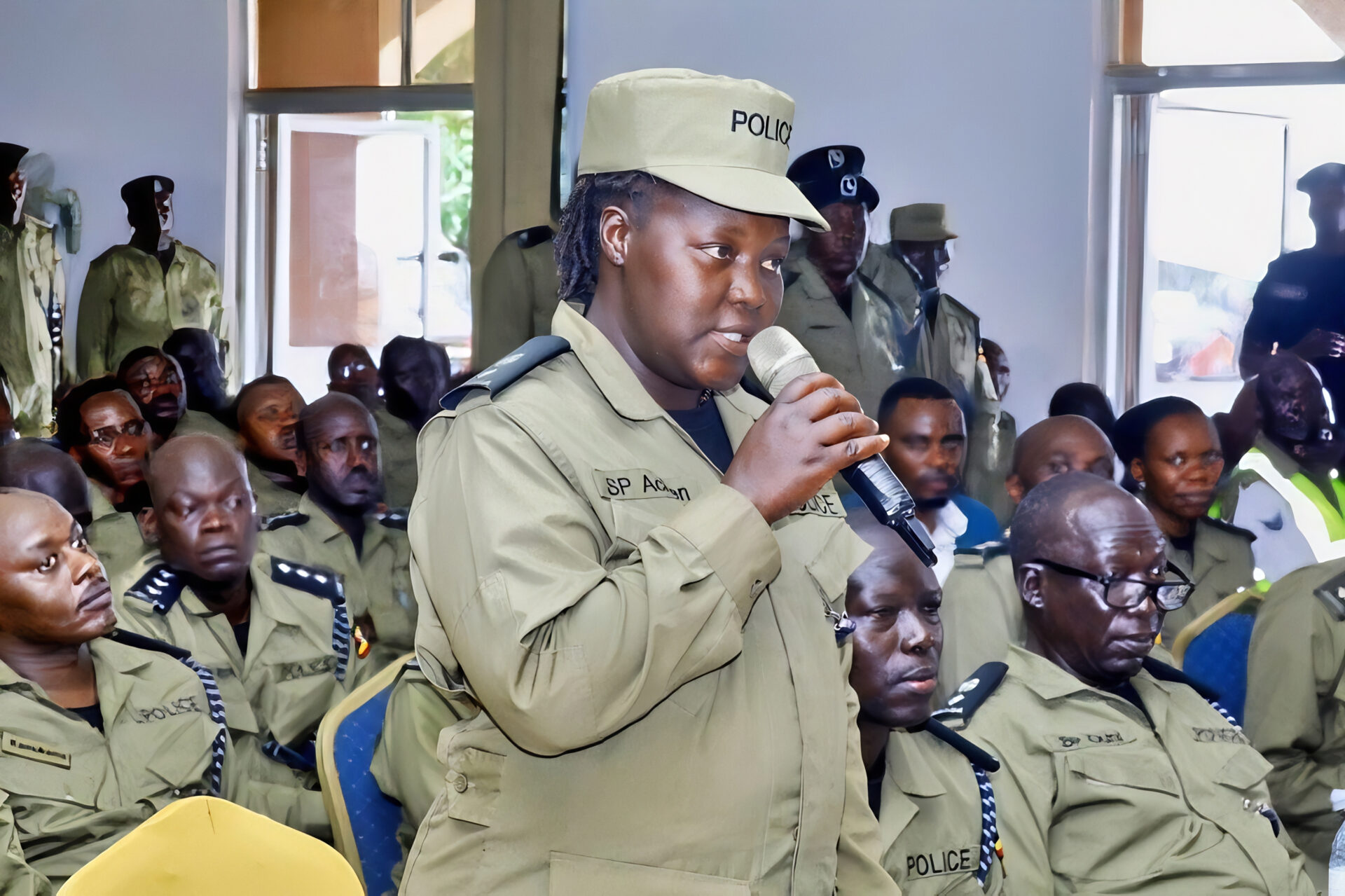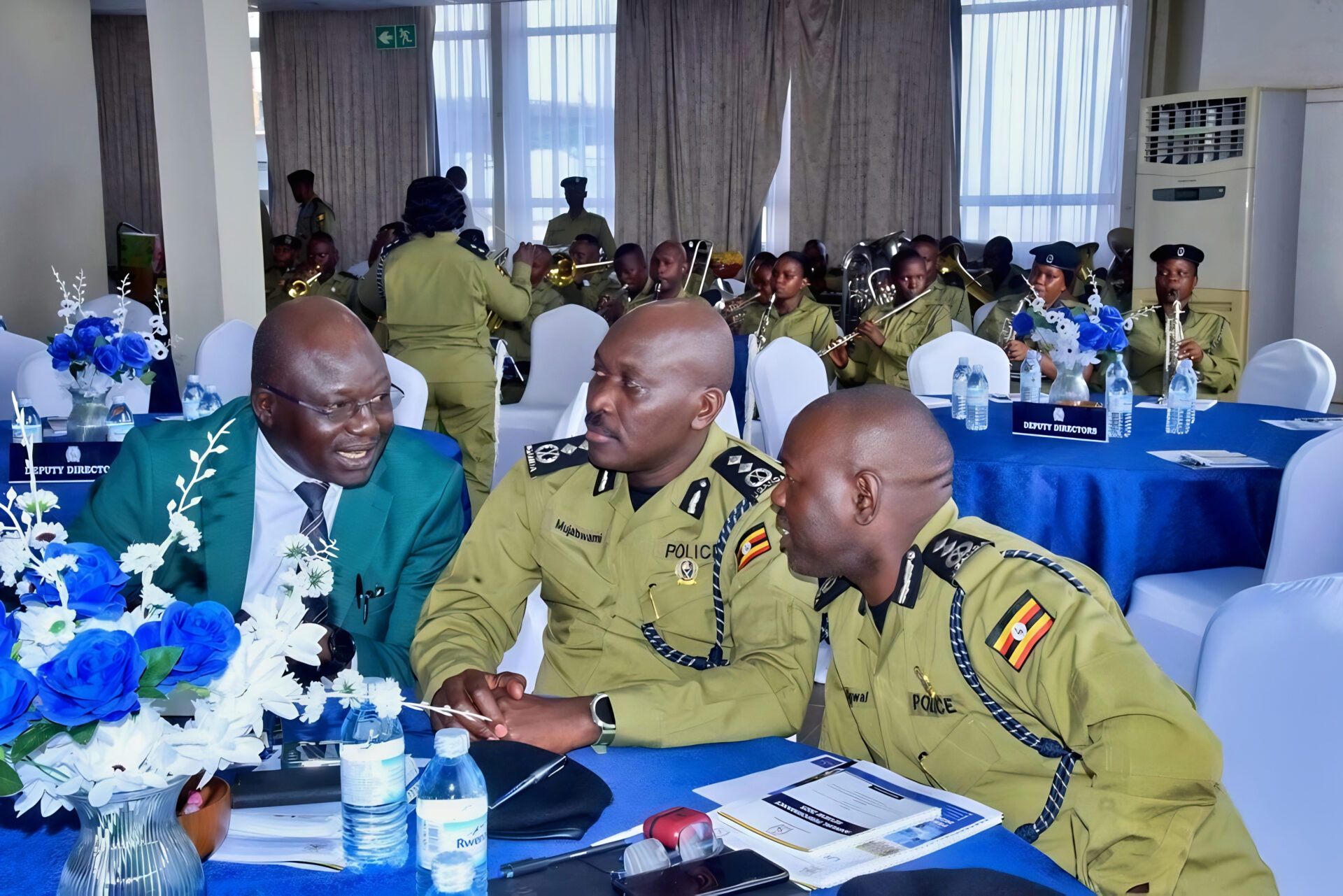Navigating Law and Perception: Uganda Police Force Defends Arrests Amidst Kidnapping Allegations
In the complex and often contentious political landscape of Uganda, a significant debate has been reignited, centring on the fundamental difference between lawful arrest and alleged kidnapping. The Uganda Police Force has issued a robust, unequivocal statement directly addressing widespread public and political allegations, particularly from opposition circles including the National Unity Platform (NUP), that its operations constitute abduction. Forcefully asserting its mandate, the police defend recent actions—including arrests related to serious charges like “unlawful drilling” under the Penal Code Act—as legitimate, necessary measures for national security and public order. This introduction delves into the heart of this controversy, analysing the police’s core arguments: their historical mandate dating back to 1906, their guarantee of due process and judicial oversight, and their staunch defence of operational discretion. Furthermore, it explores the potent counterarguments regarding the selective application of laws and the enduring shadow of past human rights allegations that fuel public scepticism. This analysis seeks to unpack the delicate and perpetual balance between state security and individual liberty, a dilemma that continues to define the relationship between the state and its citizens in Uganda.
Summary of the Police Statement on “Kidnapping” Allegations
The speaker, a police spokesperson, addresses public and political allegations that the police are “kidnapping” people, particularly members of the National Unity Platform (NUP) party.
Main Arguments:
Arrests are Normal Police Work: The spokesperson firmly states that making arrests is a core, lawful function of the police that has been part of their mandate since 1906. They argue that labelling every arrest as a “kidnapping” is a misrepresentation.
Specific Case: Unlawful Drilling: The arrests in question are related to an investigation into “unlawful drilling” (likely referring to military or paramilitary training). The spokesperson confirms that 10 people have been arrested, 9 have already been charged in court, and 1 is soon to be charged. This, they argue, proves the individuals were legally arrested and processed by the justice system, not kidnapped.
Criticism of Politicians: The speaker accuses NUP politicians of mischaracterizing these arrests to gain political capital (“accrewing capital out of every small thing”). They challenge lawmakers who complain about these laws to use their power to change them in parliament rather than protesting through bloggers and the media.
Police Discretion in Arrests: A central and forceful point is that suspects cannot dictate how they are arrested. The spokesperson states it is entirely at the police’s discretion to decide whether to summon a person or arrest them directly. They reject the idea that suspects can demand to only be summoned or arrested at a specific time.
Guarantee of Due Process: The spokesperson guarantees that anyone arrested will either be taken to court or released, asserting that the police do not have the power to hold people indefinitely.
Overall Tone: The tone is defensive, dismissive of critics, and assertive of police authority. The core message is that the police are simply enforcing existing laws and will not be told how to perform their duties by those they are investigating.

10 key points exploring the heart of this contentious debate:
“We Are Not Kidnappers, We Are Law Enforcers”
Within the heated political climate of Uganda, the police force often finds itself at the centre of a fierce storm of public criticism. Its recent, robust refutation of the term “kidnapping” to describe its arrest procedures is a pivotal statement that warrants deeper examination. This defence is not merely a public relations exercise; it is a fundamental assertion of institutional identity, legal authority, and the state’s monopoly on the use of lawful force. To understand it fully, one must view it through the lens of Ugandan law, history, and societal context.
The spokesperson’s argument is anchored in a clear and simple distinction: kidnapping is a malicious, criminal act of abduction for ransom, revenge, or other illicit gain, conducted without any legal authority. An arrest, by contrast, is a procedurally governed act performed by a state-sanctioned body to bring a suspect before the courts to answer to alleged breaches of the law. To conflate the two, from the police’s perspective, is not just an error but a “dangerous and deliberate misrepresentation” that undermines the entire justice system and erodes public trust in one of the nation’s oldest institutions.
This stance is built upon several key pillars:
1. The Mantle of Legal Authority and Historical Legitimacy:
The invocation of the Force’s history since 1906 is a powerful rhetorical tool. It is not merely a statement of age but a claim to legitimacy, experience, and institutional permanence. It positions the police as a steadfast pillar of the state, operating within a framework of laws that have evolved over decades, long before contemporary political disputes arose. Their authority is derived from the Constitution of Uganda and Acts of Parliament, such as the Police Act. This legal mandate grants them powers that are expressly forbidden to ordinary citizens, most notably the power to detain and use reasonable force. As the adage goes, “He who seeks equity must come with clean hands”; the police position is that those who break the law are in no moral position to dictate the terms of its enforcement.2. The Danger of Misrepresentation:
The police argue that using the word “kidnapping” is dangerously inflammatory. It deliberately strips their actions of their legal context and recasts law enforcement officers as common criminals. This can have severe consequences:Erosion of Public Trust: If the public truly believes the police are kidnappers, they cannot be expected to cooperate with investigations, report crimes, or view the Force as a protector.
Inciting Public Hostility: Such language can vilify officers in the eyes of the community, potentially putting them at risk and making their already difficult duties more perilous.
Undermining the Judiciary: By framing arrests as kidnappings, it pre-emptively discredits the entire judicial process that follows, suggesting the courts are merely rubber-stamping illegitimate actions.
3. The Ugandan Context: Operational Realities:
The spokesperson’s sharp retort—”you cannot dictate how we arrest you”—while jarring to some, reflects an operational reality grounded in their assessment of risk. The police would argue that in a country where organised crime, terrorism, and violent unrest are genuine concerns, the method of arrest is a tactical decision.A Summons might be appropriate for a minor, non-violent offence where the suspect is likely to comply.
A Warrantless Arrest is deemed necessary for more serious crimes, or where there is a credible belief that the suspect may flee, intimidate witnesses, or dispose of evidence if merely summoned.
From their perspective, allowing a suspect—particularly one accused of a serious offence like treason or unlawful assembly (which can escalate quickly)—to dictate the time and place of their surrender is not just impractical, but a dereliction of duty that could compromise an entire investigation.
A Counter-Perspective and the Need for Scrutiny:
However, a comprehensive explanation must also acknowledge why such a staunch defence is necessary. Public scepticism does not arise in a vacuum. Concerns often cited by civil society and legal observers include:
The Manner of Arrests: Accounts of arrests made by plainclothes officers in unmarked vehicles, outside of official police stations, and without immediate access to legal counsel fuel public anxiety and make the process resemble the very criminal act of kidnapping the police denounce.
The Gap Between Principle and Practice: While the police guarantee that all arrested persons will be taken to court or released, there are documented instances where individuals have been held for periods exceeding the constitutional 48-hour limit without being produced before a magistrate. It is this gap between official policy and ground-level practice that breeds mistrust.
Perception of Selective Enforcement: The feeling that certain laws are applied more zealously to government critics than to its supporters leads to the perception that the law is not a neutral tool but a weaponised one. This perception, whether accurate or not, is incredibly damaging to the Force’s credibility.
Conclusion:
The Uganda Police Force’s core refutation—”We are not kidnappers, we are law enforcers”—is a definitive claim to legitimacy and a warning against what it sees as the criminalisation of its lawful duties. It is a argument built on the bedrock of legal statute and historical continuity. Yet, in a democracy, trust is not demanded; it is earned. While the police rightly operate under legal authority, the court of public opinion often rules on perceptions of fairness, consistency, and transparency. The Force’s challenge, therefore, is not just to enforce the law but to consistently demonstrate that its application is impartial, its procedures are beyond reproach, and its powerful mandate is exercised with both strength and unquestionable integrity. For as another adage reminds us, “Justice must not only be done, but must also be seen to be done.”
“Unlawful Drilling” and the Imperative of National Security
The charge of “Unlawful Drilling” is not a novel or obscure invention of the Uganda Police Force; it is a long-standing provision within the country’s legal architecture, designed to protect the very foundation of the state. When the police spokesperson anchors recent arrests to this specific allegation, they are invoking one of the most serious charges in the statute book, moving the discussion from the realm of political dispute into the domain of national security. This framing is a deliberate and powerful legal strategy that justifies the state’s actions as a necessary defence of public order and constitutional integrity.
To understand this comprehensively, one must dissect the charge, its intent, and the context in which it is applied.
1. The Letter of the Law:
The offence is primarily codified in Section 48 of the Uganda Penal Code Act (Cap 120). It states:“Any person who, without the permission of the President, trains or drills any person in the use of arms or practices military exercises shall be guilty of a misdemeanour.”
The law is unequivocal. Its purpose is to ensure that the state, and the state alone, holds the monopoly on organised force and military training. This is a principle fundamental to any sovereign nation’s stability. Allowing unauthorised groups to train in combat or paramilitary tactics is considered a direct precursor to insurrection, terrorism, or organised militia activity that could destabilise the entire country. The adage, “a stitch in time saves nine,” is profoundly relevant here. The police perspective is that pre-emptively dismantling such groups is a necessary preventive measure to avoid a far greater, and bloodier, national crisis down the line.
2. The Gravity of the Charge:
By charging individuals with “unlawful drilling,” the police immediately elevate the perceived threat level of their actions. This is not a simple case of unlawful assembly or creating a public nuisance. It implies:A Threat to National Security: The activity suggests a coordinated effort that could challenge the state’s authority and endanger citizens’ lives.
Criminal Intent: Drilling implies preparation for a violent purpose, distinguishing it from a spontaneous protest or a political rally.
A Severe Judicial Response: A conviction for such a misdemeanour can carry a significant prison sentence, reflecting the seriousness with which the law views the offence.
3. The Justification for Robust Policing:
Framing an operation around this charge provides the legal and moral justification for the police’s often forceful tactics. If the state genuinely believes a group is engaging in clandestine military training, the argument for using surprise, discretion, and immediate arrest—rather than a polite summons—becomes considerably stronger. The reasoning is that you do not send a letter to alert a group you suspect of planning armed rebellion; you move swiftly to neutralise the threat. This aligns with the state’s primary duty to ensure what political philosopher Thomas Hobbes termed the “safety of the people.”The Countervailing Perspective and Necessary Scrutiny:
However, the application of such a powerful legal instrument demands rigorous scrutiny to prevent its misuse. The very gravity of the charge means its deployment must be beyond reproach.
The Burden of Proof: The onus is heavily on the state to provide transparent and compelling evidence that what occurred was indeed “drilling in the use of arms” or “military exercises.” Vague accusations or conflating basic fitness training or traditional dance groups with paramilitary activity would represent a severe abuse of this law. The evidence must be presented in court and must be credible.
The Risk of Politicisation: The major criticism from civil society and legal observers is that a charge of such gravity could be used as a political tool to silence opposition or target specific groups under the guise of national security. The broad nature of the charge—what constitutes “military exercise”—could be subjectively interpreted. This is where public scepticism often takes root; if the application of the law appears selective or targeted only at certain communities or political affiliates, its legitimacy is undermined.
Transparency in Process: For the public to have confidence, the process following such arrests must be impeccably transparent. Were the suspects promptly charged and produced in court? Was access to legal counsel granted immediately? A failure in due process can make even a legitimate charge appear like a pretextual cover for other motives.
Conclusion:
The allegation of “Unlawful Drilling” is a potent legal tool that places the police action within a framework of defending national sovereignty. It is a charge rooted in the legitimate need for any state to protect itself from internal threats of armed rebellion. From the police’s perspective, they are not arresting politicians or activists; they are apprehending individuals suspected of preparing for acts that could plunge the nation into chaos.
Ultimately, the validity of this justification hinges on two pillars: evidence and due process. The state must demonstrate, through transparent legal proceedings, that the alleged activities genuinely constituted a threat to national security as defined by the Penal Code. Without this, a charge meant to protect the nation risks being perceived as an instrument of control, eroding the very public trust it is designed to safeguard. The balance between security and liberty remains, as ever, a delicate one.
The Numbers Game – Transparency and the Assertion of Due Process
In the court of public opinion, where allegations of “kidnapping” and “disappearances” can spread with destructive speed, the Uganda Police Force’s decision to publicly release specific arrest figures—ten individuals arrested, nine arraigned in court, one awaiting charge—is a calculated and significant manoeuvre. It is far more than a simple statistic; it is a core part of their defence strategy, attempting to use data to shift the narrative from one of opaque repression to one of transparent, lawful procedure.
This move towards numerical transparency can be comprehensively explained through several layers of intent and implication.
1. The Power of Quantification to Counter Narrative:
Vague accusations of “people being kidnapped” create a space for fear, rumour, and speculation to flourish. By introducing specific, quantifiable data, the police aim to:Anchor the Debate in Fact: The numbers provide a concrete basis for discussion, moving it away from emotional rhetoric and into a realm where claims can, in theory, be verified. It challenges accusers to match their allegations with equally specific counter-data.
Demystify Police Action: The unknown is inherently frightening. Releasing figures demystifies the process, making the scale of the police operation known and limited (“ten individuals,” not scores of unnamed victims). It suggests there is nothing to hide.
2. The Judicial Process as Legitimisation:
The crucial detail in the provided data is the breakdown: nine already arraigned in court. This is the linchpin of their argument. In legal and governmental terms, this is presented as irrefutable proof of due process. The underlying message is:“We are not a law unto ourselves.” Producing suspects in court subjects police action to immediate judicial oversight. A magistrate must assess the validity of the arrest and the charges, ensuring the police have followed procedure and have a prima facie case.
It Distinguishes Arrest from Abduction: A kidnap victim never sees a courtroom. A suspect, by law, must. By highlighting this transition from police custody to judicial remand, the Force seeks to draw a clear, legal line between its operations and criminal activity.
The adage, “The devil is in the detail,” is aptly inverted here. The police are asserting that “the truth is in the detail.” The specific number of people in court is offered as the definitive detail that proves the devilry of “kidnapping” allegations is false.
3. Managing Expectations and Implicitly Justifying the “Awaiting Charge” Category:
The statement that one individual is “awaiting charge” is a pre-emptive measure to manage public scrutiny. It acknowledges that the process is not always instantaneous while still framing it within a lawful framework. The implied reasoning is:Investigations are ongoing.
Perhaps this individual is being questioned, or evidence is being consolidated.
This is a normal part of police work and does not equate to a “disappearance.” The guarantee is that this state is temporary and will culminate in either a charge or a release.
The Counter-Perspective: Why Numbers Alone Are Not Enough for Critics
However, for many observers, civil society organisations, and a sceptical public, the provision of numbers is the beginning of the scrutiny, not the end of it. The limitations of this “numbers game” are considered:
A Snapshot, Not a Full Picture: These figures relate to one specific operation. Critics argue they do not address the wider, historical pattern of allegations over many years. Providing numbers for a single incident does not absolve the Force of answering for past cases where individuals were allegedly held beyond the constitutional 48-hour limit without being produced in court.
The Question of Selective Transparency: The public is left to take the police’s word at face value. Without independent verification from a body like the Judiciary or the Uganda Human Rights Commission confirming these exact figures and their status, the numbers remain a self-serving statement. The adage “Figures never lie, but liars figure” captures this scepticism—the fear that data can be curated to present a misleadingly sanitised version of events.
Ignoring the “How” for the “What”: The numbers may answer how many, but they deliberately sidestep the more troubling questions of how these arrests were conducted. Were suspects apprehended by plainclothes officers in unmarked vehicles? Were their families notified? Were they granted immediate access to legal counsel? A lawful arrest is not defined solely by its end result (appearing in court) but also by its process. A critic would argue that even if all ten eventually appear in court, the manner of their arrest could still be experienced as a “kidnapping” if it lacked transparency and due process at the point of capture.
Conclusion:
The Uganda Police Force’s use of specific arrest figures is a strategic attempt to weaponise transparency to regain public trust and legal legitimacy. It is a powerful rhetorical tool that frames their actions within the recognised confines of the judicial system, asserting that their operations are measurable, accountable, and subject to the law.
 However, in a climate of deep-seated mistrust, numbers alone are often seen as a first step rather than a full acquittal. True transparency is not achieved by announcing outcomes, but by allowing the entire process—from the moment of arrest to the presentation in court—to be subject to verification and scrutiny. For the public to truly believe, the numbers must be verifiable, the processes must be humane and by the book, and this practice must be consistent over time, not just offered in isolation to counter a specific political firestorm. The ultimate judgement on whether these figures represent transparency or tactics will depend on the consistency and verifiability of the process they claim to represent.
However, in a climate of deep-seated mistrust, numbers alone are often seen as a first step rather than a full acquittal. True transparency is not achieved by announcing outcomes, but by allowing the entire process—from the moment of arrest to the presentation in court—to be subject to verification and scrutiny. For the public to truly believe, the numbers must be verifiable, the processes must be humane and by the book, and this practice must be consistent over time, not just offered in isolation to counter a specific political firestorm. The ultimate judgement on whether these figures represent transparency or tactics will depend on the consistency and verifiability of the process they claim to represent.Accusations of Political Opportunism
A central and deeply pointed feature of the Uganda Police Force’s rebuttal was its direct accusation against political opponents—particularly those from the National Unity Platform (NUP)—of engaging in “political opportunism.” The phrase “accrewing capital out of every small thing” is a rich Ugandan-ism that paints a vivid picture: it alleges that politicians are not responding to events out of genuine concern, but are instead strategically exploiting them, like a business accruing profit, to build their political brand, garner sympathy, and weaken public faith in state institutions. This accusation is a critical counter-narrative that seeks to reframe the entire debate from one about police conduct to one about political motives.
To understand this comprehensively, we must explore the layers of this accusation and its grounding in the Ugandan political landscape.
1. The Strategy of “Victimhood” and Sympathy Generation:
The police argument posits that by consistently framing arrests as “kidnappings,” opposition politicians are strategically casting themselves and their supporters as victims of a brutal and illegitimate state apparatus. This serves a clear purpose:It garners public sympathy: Portraying oneself as a victim of a powerful adversary is a classic and often effective political strategy to build emotional connections with the electorate.
It deflects from the alleged crime: The police contend that this narrative deliberately shifts the spotlight away from the specific, serious legal allegation (e.g., unlawful drilling) and onto the method of apprehension. The question changes from “Did you break the law?” to “How dare they arrest you like this?”. This, from the police perspective, allows the politician to avoid accountability for the initial alleged action.
2. The Vilification of State Institutions:
A deeper goal, as implied by the police, is the deliberate erosion of public trust in key pillars of the state—the police and, by extension, the judiciary. The adage, “If you repeat a lie often enough, it becomes the truth,” encapsulates the police’s fear. They argue that the constant, loud repetition of terms like “kidnap” is designed to create a false but accepted reality that state institutions are inherently criminal and illegitimate. Weakening these institutions is a strategic move to de-legitimise the government itself and position the opposition as the only true defenders of the people.3. The “Cry Wolf” Dilemma and Genuine Cases:
The police’s accusation touches on a critical risk for government critics: the “Cry Wolf” syndrome. If every lawful arrest is sensationalised and labelled as an abduction, the public may become desensitised. The danger, as the police might see it, is that if a genuine case of overreach or an actual unlawful detention were to occur, the public might dismiss it as just more political noise. This dynamic allows the police to frame themselves as the rational actors focused on law and order, juxtaposed against what they portray as hysterical and self-serving politicians.The Counter-Perspective: Why the “Opportunism” Claim is Contested
While the police’s perspective is internally logical, it is fiercely contested by government critics and civil society for several reasons:
Dismissing Legitimate Grievances: The most potent counter-argument is that the state uses the label of “opportunism” to automatically dismiss any and all criticism as illegitimate. It becomes a tool to avoid engaging with the substantive details of the complaint. A citizen’s genuine fear about due process is not opportunism; it is a concern for their rights.
The Power Imbalance: The accusation ignores the vast power imbalance between the state and the individual. When the state, with all its resources, arrests a person, the individual’s primary platform is often to raise public alarm. What the state calls “accruing capital,” the individual may call “seeking justice and protection through the only channels available to them.”
Historical Precedent: Public scepticism towards the police is not born in a vacuum. It is often rooted in past documented instances of abuse, overreach, or partisanship. Therefore, accusations of “kidnap” may be an exaggerated but understandable reaction based on a history of trust being broken. The onus is on the police to build trust through consistent, transparent action, not simply to demand it.
The Ugandan Context: A Recurring Dynamic
This exchange is not new; it is a recurring script in Ugandan politics. The state routinely attributes political motives to its critics, while the opposition routinely alleges state-sponsored repression. This creates a deeply polarised environment where objective truth becomes a casualty. The public is often left caught in the middle, forced to decipher whether a specific event is a genuine case of law enforcement or a politically motivated act being justified by legalistic language.
Conclusion:
The Uganda Police Force’s accusation of political opportunism is a powerful rhetorical weapon. It is an attempt to invert the narrative, positioning the state as the victim of a calculated political strategy designed to undermine its authority and the rule of law. It seeks to reframe the discussion from one of legal rights and state conduct to one of political motive and strategy.
 However, for this accusation to hold weight beyond its core supporters, it must be accompanied by consistent, demonstrable impartiality and transparency from the state’s institutions. Otherwise, it risks being perceived as a standardised, dismissive response to any and all criticism. Ultimately, in a healthy democracy, the focus should remain on the substantive facts of each case—the evidence for the arrest and the meticulousness of the due process—rather than the escalating, and often unprovable, accusations of bad faith from both sides. The truth, as another adage goes, is often the first casualty in such battles.
However, for this accusation to hold weight beyond its core supporters, it must be accompanied by consistent, demonstrable impartiality and transparency from the state’s institutions. Otherwise, it risks being perceived as a standardised, dismissive response to any and all criticism. Ultimately, in a healthy democracy, the focus should remain on the substantive facts of each case—the evidence for the arrest and the meticulousness of the due process—rather than the escalating, and often unprovable, accusations of bad faith from both sides. The truth, as another adage goes, is often the first casualty in such battles.A Challenge to Parliament – Change the Law, Don’t Complain
A particularly potent element of the Uganda Police Force’s rebuttal was its pointed challenge directed at Members of Parliament, particularly those criticising the enforcement of laws like the one against “unlawful drilling.” The spokesperson’s argument was a masterstroke of political jujitsu: he shifted the focus from the executive’s enforcement of the law to the legislature’s responsibility for creating and amending it. By stating that complaining MPs “possess the legislative power to amend or repeal them in Parliament,” the police were not just defending their actions; they were launching a counter-offensive on the grounds of hypocrisy and parliamentary duty, effectively saying, “The tool to fix this is in your hands. Why are you shouting at us instead of using it?”
This challenge can be comprehensively broken down through the lenses of constitutional theory, political strategy, and the stark realities of the Ugandan political landscape.
1. The Constitutional Mandate: A Clear Separation of Powers:
At its heart, the police’s argument is rooted in a fundamental principle of governance: the separation of powers.
The Legislature (Parliament) has the power to make and amend laws. This is their primary function—to represent the will of the people by drafting, debating, and passing legislation.
The Executive (Government Ministries and Agencies, including the Police) has the power to execute and enforce the laws passed by Parliament. Their role is operational, not legislative.
The police spokesperson’s retort firmly places the ball in Parliament’s court. The underlying message is: “Our mandate, derived from the Constitution, is to enforce the laws you create. If you, as the authors of the law, find it unjust, your platform is the parliamentary floor, not the media talk show. Use your power, do not simply lament ours.”
2. The Accusation of Hypocrisy and Political Theatre:
The accusation that using media and bloggers to protest is hypocritical is a direct attack on the MPs’ motives. The police framing suggests these complaints are not a genuine pursuit of justice but are instead:
Political Theatre: A performance for the public and grassroots supporters designed to signal defiance and victimhood, which is more politically lucrative than engaging in the complex, slow, and often fraught legislative process.
Avoiding Accountability: It allows MPs to criticise the state without having to take the difficult and potentially risky vote to repeal a law that is ostensibly about “national security.” Voting against such a law could be spun by opponents as being “soft on security” or supportive of insurrection.
The adage, “Empty vessels make the most noise,” is implicitly invoked here. The police imply that the loud complaints in the media are a substitute for substantive, effective action—action the MPs are uniquely empowered to take.
3. The Practical Reality of Legislative Power in Uganda:
While constitutionally sound, this challenge operates within the intricate and often harsh realities of Uganda’s political ecosystem.
The Weight of the Majority: Critics would argue that for an opposition MP, the power to change a law is more theoretical than real. With the ruling party holding a significant majority, a private member’s bill aimed at repealing a contentious security-related law faces a near-insurmountable hurdle. It would likely be voted down or languish in committee indefinitely.
The “Talking Out of Turn” Dilemma: From the police’s perspective, using external platforms to challenge a law you cannot immediately repeal is an end-run around the established democratic process. It is seen as delegitimising Parliament itself. The proper channel, they would argue, is to table the motion, spark the debate on the floor, and force a public vote, even if it is destined to lose. This, they might contend, would be a honest day’s work rather than what they perceive as grandstanding.
The Counter-Perspective: Why MPs Might Still “Complain”
The police’s challenge, while logically compelling, is seen by government critics as overly simplistic and dismissive of the political opposition’s practical constraints.
The Role of the Public Platform: In a democracy, MPs have a dual role: to legislate and to represent their constituents’ grievances. Taking an issue to the media is a way to raise public awareness, galvanise citizen action, and create pressure that might eventually force a legislative change. It is not necessarily hypocrisy; it can be a vital tool of political advocacy, especially for a minority.
Highlighting Injustice vs. Legislating: An MP’s duty is not only to change laws, but also to highlight their unjust application. Even if a law remains on the books, public criticism can act as a check on its abuse, potentially making the executive more cautious in its enforcement.
The Nature of the Law Itself: Critics of laws like “unlawful drilling” often argue they are overly broad and vague, making them ripe for abuse. An MP might argue that protesting a specific, perceived misuse of the law is a separate issue from the broader, more complex debate about its repeal.
Conclusion:
The Uganda Police Force’s challenge to Parliament is a sophisticated rhetorical move that leverages constitutional principle to accuse critics of bad faith. It seeks to portray the Force as a neutral actor trapped between a legislative body that won’t change the laws and a political opposition that won’t play by the rules of that body.
However, this argument exists in the tension between idealised governance and political reality. While the police correctly identify Parliament as the source of legislative power, they arguably downplay the immense practical challenges facing opposition MPs seeking reform. The true measure of this challenge lies in whether the parliamentary process is genuinely accessible and responsive to all elected representatives, or if the deck is so stacked that public complaint becomes not an act of hypocrisy, but the only meaningful tool of dissent left available. The situation encapsulates a deeper struggle within many democracies: whether the system is functioning well enough for its institutional channels to be the sole arenas for political contestation.
Asserting Police Discretion – “You Can’t Dictate How We Arrest You.”
The most forceful and legally contentious pillar of the Uganda Police Force’s statement was its unequivocal assertion of operational discretion. The declaration that a suspect cannot dictate the terms of their own arrest is a fundamental claim to state authority, framing the relationship between the citizen and the law enforcer in stark, hierarchical terms. This is not merely a point of procedure; it is a philosophical stance on power, order, and the state’s monopoly on the legitimate use of force. To understand its full import, one must examine its legal basis, its strategic purpose, and the legitimate concerns it raises.
1. The Legal and Operational Basis for Discretion:
The police’s position is grounded in the practical realities of law enforcement and the powers granted to them by statute, such as the Uganda Police Act and the Magistrates Courts Act.
Tactical Necessity: The police argue that the method of apprehension is a tactical decision based on risk assessment. A summons—a written order to appear in court—is suitable for minor, non-violent offences where compliance is expected. A warrantless arrest, however, is deemed necessary for more serious crimes or where there is a credible belief that the suspect may abscond (flee), intimidate witnesses, destroy evidence, or continue to commit offences. Allowing a suspect to negotiate the terms would, from an operational standpoint, be like warning a target before a raid, rendering the action futile.
The Element of Surprise: For offences perceived as grave threats to public order or national security (like the cited example of “unlawful drilling”), the element of surprise is considered crucial to prevent violence, secure evidence, and detain all participants simultaneously.
2. The Philosophical Underpinning: The State’s Authority:
The spokesperson’s retort—“it is not within your powers to tell us you can only come for me on Friday”—is a powerful rhetorical embodiment of this principle. It draws a clear line:
The Citizen’s Domain: The choice to allegedly break the law.
The State’s Domain: The choice of how to enforce it.
This asserts that the authority of the state is not a subject for negotiation. It echoes the adage, “You can’t have your cake and eat it,” implying that one cannot engage in unlawful activity and then expect to control the consequences. The police frame themselves as the neutral executors of a mandate given to them by Parliament and the Constitution, not servants to the demands of those they investigate.
3. The Ugandan Context: A Response to Perceived Challenges:
This forceful assertion did not occur in a vacuum. It is a direct response to a specific phenomenon in Ugandan political discourse, where individuals, particularly high-profile figures, sometimes publicly dare the police to arrest them or set conditions for their cooperation. The police statement is a blanket rejection of this practice, intended to re-establish an unambiguous chain of command and deter what they perceive as attempts to manipulate due process for political theatre.
The Counter-Perspective: The Slippery Slope of Unchecked Discretion
While the police’s argument for operational flexibility is logically sound in theory, in practice, the absolute assertion of discretion without accountability is where significant concerns from civil society and legal scholars arise.
The Threat to Liberty and Due Process: The core principle of a democracy under the rule of law is that state power is never absolute; it must be checked to prevent abuse. An unchecked power to arrest at any time, in any manner, can easily morph into a tool of intimidation and harassment. It creates a environment where citizens, particularly government critics, may feel they are at constant risk of having their liberty revoked without warning.
The Manner of Arrest Matters: International human rights standards and Uganda’s own Constitution guarantee every person the right to liberty and security of person. The manner of an arrest is a key component of this. Arrests should be conducted with professionalism, with the suspect informed of the reason, and without unnecessary force. The fear is that an attitude of “we’ll do it our way” could be used to justify practices that blur the line between a lawful arrest and an abduction—such as operations by plainclothes officers in unmarked vehicles outside of formal police stations.
Erosion of Public Trust: When a population perceives that police powers are exercised arbitrarily or punitively, trust evaporates. People become less likely to cooperate with investigations, report crimes, or view the police as protectors. This ultimately makes the police’s job more difficult and society less safe. The adage “Authority without wisdom is like a heavy axe without an edge, fitter to bruise than to polish” warns of the danger of wielding power without the careful judgement and restraint that fosters public consent.
Conclusion:
The Uganda Police Force’s assertion of discretion is a definitive claim to its operational authority, designed to shut down what it views as illegitimate interference in its lawful duties. It is a argument built on the necessity of effective crime prevention and the primacy of state power.
However, in a constitutional democracy, discretion cannot mean impunity. The crucial balance lies in ensuring that this police discretion is:
Lawful: Exercised within the strict confines of the law and the Constitution.
Proportional: The method of arrest must be proportionate to the alleged offence and the specific risks posed by the suspect.
Subject to Oversight: Ultimately, the judiciary must serve as a robust check on this power, diligently reviewing the circumstances of each arrest to ensure it was not merely lawful, but also reasonable and just.
The public’s acceptance of this discretion, therefore, is wholly contingent on the consistent and demonstrably impartial application of it. Without this, the powerful statement “you can’t dictate how we arrest you” risks being perceived not as a defence of order, but as a declaration of absolute power.
The Guarantee of Due Process – The Bedrock of Liberty
Amidst the fierce rhetoric and the assertion of raw state power, the Uganda Police Force’s guarantee of due process serves as its most critical claim to legitimacy and legality. The promise that “any individual arrested will either be taken to court or released” is not a mere comforting aside; it is a direct invocation of the foundational constitutional principle that separates a state governed by the rule of law from one ruled by arbitrary power. This guarantee is the essential counterweight to the police’s formidable discretionary powers, designed to reassure the public that while the state has the authority to detain, its power is neither absolute nor indefinite.
To understand this guarantee comprehensively, one must examine its constitutional basis, its function as a public reassurance, and the chasm that can sometimes exist between principle and practice.
1. The Constitutional Anchor: Article 23 of the Uganda Constitution:
This police guarantee is rooted squarely in the supreme law of the land. Article 23 of the Constitution of the Republic of Uganda provides robust protections against arbitrary detention:
It states that no person shall be deprived of personal liberty except in specific circumstances, including upon reasonable suspicion of having committed a crime.
Most critically, Article 23(4) mandates that a person arrested or detained must be brought before a court “within forty-eight hours from the time of his or her arrest.”
This 48-hour rule is the operational manifestation of due process. It is the legal mechanism that forces the state’s hand. The police cannot simply hold someone; they must, within a constitutionally mandated window, justify the detention before an independent judicial officer. The police guarantee, therefore, is a public pledge to adhere to this most basic and vital of legal constraints.
2. The Reassurance Against the Spectre of “Disappearance”:
In a region where memories of past regimes and reports from other nations have made “ungazetted” detention and enforced disappearances a pervasive fear, this guarantee serves a crucial psychological and civic function.
It Affirms Judicial Oversight: The promise of production in court affirms that the police are not a law unto themselves. It recognises the judiciary as the ultimate arbiter of liberty. This aligns with the adage, “No one should be a judge in his own cause,” meaning the police, who are party to the arrest, cannot also be the ones to decide on its indefinite continuation. That power resides with the courts.
It Provides a Measurable Benchmark: For families and lawyers of detainees, the 48-hour rule provides a clear timeline. It transforms an abstract fear into a concrete deadline. If the state fails to meet this deadline, its action becomes unequivocally unlawful, providing grounds for habeas corpus applications and other legal remedies.
3. The “Or Released” Clause: Acknowledging Fallibility:
The second part of the guarantee—”or released”—is equally significant. It implicitly acknowledges that not every arrest will lead to a charge. It allows for the possibility that, upon further investigation, suspicions may prove unfounded. This admission is a key component of a fair system, recognising that the power to arrest is not the same as the power to convict, and that the state must have the integrity to correct its own mistakes.
The Counter-Perspective: The Gap Between Promise and Perception
Despite the clarity of this constitutional guarantee, public scepticism persists. This scepticism arises from a perceived gap between the principle and its consistent application in practice.
The “Produced But Not Charged” Tactic: Critics point to instances where individuals are produced in court within 48 hours only for the state to request further remand for “investigations to be completed.” While this is a legal procedure, its repeated use for extended periods can be perceived as a technical compliance with the letter of the law that violates its spirit, effectively legitimising prolonged detention without a formal charge.
Access to Counsel and Family: Being taken to court is one step. True due process also entails the right to immediate access to a lawyer and the ability to inform one’s family of one’s whereabouts. Allegations of incommunicado detention within the 48-hour period, or denied access to legal counsel, undermine the meaningfulness of the guarantee.
The Question of Venue: There are concerns that individuals may be moved between different police stations or facilities to make it difficult for families and lawyers to locate them within the critical 48-hour window, effectively circumventing the spirit of the law even if they are eventually produced in court.
Conclusion: The Guarantee as a Standard, Not a Ceiling
The Uganda Police Force’s guarantee of due process is a necessary and constitutionally sound pledge. It correctly identifies the production before a court as the fundamental event that distinguishes a lawful arrest from an unlawful detention. It is the legal and moral line the Force draws to justify its immense power.
However, for this guarantee to effectively quell public fear and build trust, it must be understood as the absolute minimum standard of lawful behaviour, not the gold standard of transparent and humane policing.
True due process is not merely about meeting a deadline. It is about the entire experience from arrest to arraignment: the manner of the arrest, the conditions of detention, the immediate access to legal representation, and the humane treatment of the suspect. Therefore, the enduring challenge for the Uganda Police Force is to ensure that its operational practices consistently reflect not just the letter of this guarantee, but its full spirit. The public’s belief in this promise will be determined not by its repetition in press statements, but by its unwavering application in every single case, away from the glare of the media spotlight. In the end, the state is measured not by its power to detain, but by its unwavering commitment to the rules that limit that very power.
The Counterargument – Perception vs. Reality and the Spectre of Selective Application
While the Uganda Police Force grounds its defence in the black-letter text of the law and its institutional mandate, the most potent and persistent challenge to its legitimacy comes from the counterargument of selective application. This critique moves beyond the question of what the law says to the more complex and politically charged question of how and against whom it is enforced. Critics and human rights organisations argue that the law is not a neutral instrument of public order but a weaponised tool, and that the chasm between the state’s legal rhetoric and its operational reality fosters a damaging and justified perception of bias.
This counterargument can be comprehensively broken down into its core components, its real-world manifestations, and its profound implications for the rule of law in Uganda.
1. The Principle of Equality Before the Law:
The foundational premise of any constitutional democracy is that all citizens are subject to the same laws and should be treated with equal consideration by the justice system. This is enshrined in Article 21 of the Ugandan Constitution, which guarantees freedom from discrimination. The counterargument posits that this principle is systematically violated through a two-tiered system of justice:
Tier One: Full Force of the Law for Critics: For opposition figures, activists, and government critics, the law is applied with maximum rigour and swiftness. Charges like “unlawful assembly,” “incitement to violence,” or “unlawful drilling” are pursued aggressively.
Tier Two: Impunity for the Aligned: For individuals or groups perceived to be aligned with the state or the ruling party, similar or even more egregious alleged infractions are met with inertia, failed investigations, or a conspicuous lack of prosecutorial zeal.
2. The Mechanics of “Weaponisation”:
The perception of weaponisation is not based on a single incident but on observed patterns of behaviour that suggest a political, rather than a purely legal, logic to law enforcement.
Disproportionate Response: A peaceful protest by an opposition group may be met with severe crackdowns and mass arrests under public order laws, while a larger rally by supporters of the ruling party may proceed with a noticeable lack of police intervention, even if it technically violates the same regulations.
Politicised Investigations: Critics point to a tendency for serious allegations of corruption, violence, or abuse of office against powerful figures to see investigations stall indefinitely, with files reportedly “getting lost” or prosecutors citing a lack of evidence. Conversely, investigations into opposition figures are often conducted with great public fanfare and speed.
The Use of Ambiguous Laws: Broadly defined charges, such as “incitement to violence” or “common nuisance,” are seen as particularly susceptible to selective application. Their legal vagueness provides wide discretion to law enforcement, allowing them to target specific individuals for speeches or actions that, if performed by another, would likely be ignored.
The adage, “The law is a spider’s web; the small are caught and the great break through,” encapsulates perfectly this critique. It suggests the legal system is designed to ensnare the weak and the politically vulnerable while being effortlessly navigated by the powerful and the connected.
3. The Consequences: Erosion of Trust and Legitimacy:
The impact of this perceived selectivity is devastating to the civic health of the nation.
Erosion of Legitimacy: When the public perceives the law as a weapon, the police and judiciary cease to be viewed as neutral arbiters. They are instead seen as combatants for one side of the political divide. This strips the state’s actions of their moral authority, no matter how legally sound they may be on paper.
Cynicism and Alienation: This environment breeds deep public cynicism. Citizens may become disengaged from the state, viewing it not as a protector but as a predator. Cooperation with police investigations plummets, as providing information could be seen as participating in a politicised witch hunt.
The “Boy Who Cried Wolf” Dilemma for the State: Ironically, the perception of selectivity harms the state’s ability to act legitimately even when it is in the right. If the public believes all arrests are politically motivated, they may dismiss a genuinely dangerous individual’s arrest as just another act of political repression, thus undermining genuine national security efforts.
The State’s Rebuttal and the Complexity of Proof:
The state typically rebuts this counterargument by asserting that it simply enforces the law without fear or favour and that the higher visibility of arrests involving opposition figures is a function of their public and political nature, not of bias. They might argue that comparing a public protest to a private meeting is not a like-for-like comparison.
Furthermore, proving systemic “selective application” is notoriously difficult. It requires demonstrating a pattern of intent and a consistent policy of inaction, which is often circumstantial. The state can always point to the legal basis for any single action, making the broader pattern easy to dismiss as a collection of isolated, legally justified incidents.
Conclusion:
The counterargument of selective application is ultimately about the spirit of the law versus the letter of the law. The Uganda Police Force may correctly cite the specific statute under which an arrest is made, but critics argue that the consistent pattern of its enforcement reveals a political spirit animating its application.
This creates a reality where two parallel truths exist: the state’s reality of lawful enforcement and the public’s perception of weaponised repression. Bridging this chasm is the single greatest challenge to policing in Uganda. It requires not just the occasional guarantee of due process, but a demonstrably consistent, transparent, and impartial record of enforcement across the entire political spectrum. Until then, the perception of a two-tiered justice system will remain a powerful and corrosive force in Ugandan public life, regardless of the legal merits of any individual case. For a nation to truly have the rule of law, the law must rule equally over all.
The Shadow of Past Allegations – The Burden of History
A Uganda Police Force spokesperson’s assurance, however firmly stated, does not exist in a vacuum. It is delivered onto a landscape deeply scarred by history. This context is the critical, often unspoken, element that explains the profound and resilient public scepticism towards official guarantees. The statement, therefore, exists under the long shadow cast by well-documented reports from esteemed international and domestic human rights organisations, which have previously detailed instances of enforced disappearances, illegal detention, and torture. This history is not a mere footnote; it is the primary reason why public trust is a hurdle to be overcome, not a presumption to be enjoyed.
To understand this dynamic comprehensively, one must examine the nature of these past allegations, their psychological impact on the public consciousness, and the resulting burden of proof placed upon the state.
1. The Weight of Documented History:
Organisations such as Human Rights Watch, Amnesty International, and the UN Human Rights Council operate under rigorous methodologies. Their reports are not based on rumour but on victim testimony, medical evidence, and cross-referenced accounts. Past reports have alleged:
Enforced Disappearances: Where individuals have been apprehended by state agents and their whereabouts concealed, placing them outside the protection of the law for extended periods, in direct violation of the Constitution.
Illegal Detention in Unofficial Sites: Allegations of detainees being held in so-called “safe houses” or other ungazetted facilities, denying them access to lawyers, families, and the judiciary, and circumventing the 48-hour constitutional rule.
Torture and Ill-Treatment: Documented claims of brutal interrogation methods intended to extract information, punish dissent, or intimidate individuals and their communities.
These allegations create a documented historical record that stands in stark contrast to the police’s present-day assurances of due process.
2. The Psychological Impact: The Erosion of Trust:
The adage, “Fool me once, shame on you; fool me twice, shame on me,” is deeply pertinent here. For a citizenry that has witnessed or heard credible accounts of past abuses, a new police guarantee is met not with acceptance, but with measured scrutiny.
The Precedence of Experience over Promise: When past promises have been broken, new ones are inherently less credible. The collective memory of the community holds more weight than the official statement of the day. This creates a situation where the police must constantly prove themselves innocent against the backdrop of their own alleged history.
The “Credibility Gap”: This chasm between official rhetoric and documented past practice is known as a credibility gap. Each new allegation of abuse, whether proven or not, widens this gap, making it increasingly difficult for the state to be believed, even when it is telling the truth.
3. The Shifted Burden of Proof:
In a context of high trust, the burden of proof lies with the accuser. However, in an environment shadowed by past allegations, this burden dramatically shifts onto the state institution itself.
The public and civil society no longer accept mere verbal assurances as fact. They demand verifiable, tangible evidence that due process is being followed in each and every case.
This demands a level of transparency that goes beyond announcing numbers. It requires allowing access to detainees for lawyers and families, promptly producing suspects in court, and providing full accountability for every individual taken into custody. The absence of this transparency is immediately interpreted through the lens of past misconduct.
The Ugandan Context: A Recurring Narrative
Within Uganda, this is not an abstract concept. The narrative of state-sponsored disappearances and illegal detention has surfaced repeatedly over different political eras, affecting various groups. This recurrence reinforces the shadow, turning isolated allegations into a perceived pattern of behaviour that transcends any single government or police leadership. It becomes embedded in the national psyche as a latent possibility of state action.
The State’s Perspective and the Challenge:
From the police’s perspective, this historical shadow is an unfair millstone. They may argue that past incidents are just that—in the past—and that the current institution should be judged on its present actions and legal justifications. They may dismiss international reports as biased or based on the agendas of hostile entities.
However, institutions, like individuals, are judged by their record. Rebuilding trust is a proactive endeavour, not a passive expectation. It requires:
Acknowledgment: Acknowledging past mistakes rather than flatly denying all historical allegations.
Demonstrable Consistency: A consistent, visible, and unwavering commitment to due process over a long period, in high-profile and low-profile cases alike.
Transparency: Welcoming, rather than resisting, independent oversight.
Conclusion:
The shadow of past allegations is the single greatest obstacle to the Uganda Police Force’s credibility. It means their statements are heard by a public that is already primed for disbelief. A guarantee of due process, while constitutionally correct, is measured against a history where such guarantees were allegedly rendered meaningless.
 Therefore, the police’s challenge is not merely to enforce the law justly today, but to actively confront the ghosts of yesterday. They must undertake the arduous task of rebuilding trust through a long-term, consistent, and transparent record of lawful conduct that slowly but surely proves the present to be different from the past. Until then, the shadow will remain, and public scepticism will remain a rational, defensible, and significant hurdle to their authority. Trust, once broken, is not repaired by words alone, but by a relentless and verifiable commitment to change.
Therefore, the police’s challenge is not merely to enforce the law justly today, but to actively confront the ghosts of yesterday. They must undertake the arduous task of rebuilding trust through a long-term, consistent, and transparent record of lawful conduct that slowly but surely proves the present to be different from the past. Until then, the shadow will remain, and public scepticism will remain a rational, defensible, and significant hurdle to their authority. Trust, once broken, is not repaired by words alone, but by a relentless and verifiable commitment to change.The Balance Between Security and Liberty – The Eternal Tightrope
At the heart of the fraught relationship between the Uganda Police Force and its critics lies a dilemma as old as governance itself: the perpetual tension between state security and individual liberty. This is not a Ugandan invention, but a universal struggle that every society must navigate. However, the particular intensity of the debate in Uganda underscores its profound implications for the nation’s democratic character. The police frame their actions as a necessary, non-negotiable defence of public order and national stability, while critics perceive the same actions as a dangerous overreach that stifles legitimate dissent and violates fundamental rights. This clash represents two competing visions of how a state should function.
To comprehend this balance, one must examine the philosophical underpinnings of both positions and the precarious tightrope the state must walk.
1. The Primacy of Security: The State’s Imperative
The state’s primary raison d’être, as articulated by political philosophers from Thomas Hobbes onward, is to provide security and order. Without it, there can be no liberty, no commerce, and no societal progress. The Uganda Police Force’s perspective is firmly rooted in this imperative.
The “Foundational Floor” Argument: Security is presented as the essential foundation upon which all other rights are built. The right to life, property, and freedom of movement are meaningless if anarchy, insurrection, or terrorism prevails. The police see themselves as the guardians of this foundational floor.
Pre-emptive Action: From this viewpoint, laws against acts like “unlawful drilling” are not repressive but preventive. The state argues it has a duty to act against potential threats before they materialise into violence that could claim innocent lives and destabilise the nation. The adage, “A stitch in time saves nine,” is frequently invoked to justify pre-emptive arrests and robust interventions, suggesting that early action prevents a much larger catastrophe later.
2. The Primacy of Liberty: The Citizen’s Safeguard
The counter-argument, championed by critics, civil society, and opposition figures, draws from a different philosophical tradition—one that fears the state itself as the primary threat to liberty.
The Slippery Slope: Critics argue that granting the state expansive security powers inevitably leads to abuse. A power granted to combat a genuine threat today can be twisted to silence a political opponent tomorrow. Once liberties are surrendered for security, they are notoriously difficult to reclaim.
Dissent is Not Disloyalty: This perspective makes a crucial distinction between criminal activity and legitimate political dissent. Critics contend that the state often deliberately conflates the two, labelling robust opposition, protests, and critical speech as threats to “public order” or “national security” to justify their suppression.
The Constitution as a Bulwark: This side points to the Ugandan Constitution not as a document that grants rights, but as one that recognises and protects inherent, inalienable rights. The Bill of Rights is thus a bulwark against the state, designed to limit its power and prevent the tyranny of the majority.
The Ugandan Context: A Precarious and Politicised Balance
In Uganda, this philosophical debate is intensely practical and politicised. The balance is not struck in an abstract court but in the streets during protests, in police stations during interrogations, and in courtrooms during remand hearings.
The Security Narrative: The state’s narrative is powerfully shaped by its history. Having fought a brutal civil war to attain power and faced numerous armed insurgencies thereafter, the government possesses a deeply ingrained “security-first” mindset. This historical context makes it highly sensitive to any activity that resembles mobilisation or military preparation, viewing it through the lens of potential rebellion.
The Liberty Narrative: For many citizens, the post-war era was supposed to usher in a “peace dividend” characterised by greater freedoms and democratic space. The persistent use of security laws to manage political life feels like a betrayal of this promise—a permanent state of exception that privileges the security of the regime over the liberty of the people.
The Illusion of Balance and the Search for Proportionateity
The great challenge is that this is not a simple seesaw where one side must win. A society that sacrifices all liberty for total security gains neither, as it becomes a prison. A society that sacrifices all security for absolute liberty quickly descends into chaos.
The true goal, therefore, is not balance but proportionality. This principle demands that any state action that curtails liberty must be:
Necessary: Is it the least restrictive means available to achieve a legitimate security goal?
Proportionate: Is the scale of the state’s response commensurate with the scale of the alleged threat? Using counter-terrorism powers to break up a peaceful protest would be a clear failure of this test.
Conclusion: The Unending Vigilance
The debate between security and liberty is never truly resolved; it is a constant negotiation that reflects the health of a democracy. The police’s framing of their role is a vital one—a state must be able to protect itself. However, the critics’ vigilance is equally vital—for unchecked state power is the graveyard of liberty.
The enduring question for Uganda is whether its institutions can find that proportionate middle ground. Can the state demonstrate that its security actions are precisely targeted, judicially overseen, and absolutely necessary, rather than broad, arbitrary, and politically convenient? Can dissent be tolerated as a vital part of the national conversation, rather than treated as a national security threat?
The adage “Eternal vigilance is the price of liberty” reminds us that this is not a passive process. It requires a vigilant citizenry to hold the state to account, and an honourable state that respects the constraints placed upon it. The true measure of Uganda’s democratic maturity will be found not in the triumph of one side over the other, but in the ability of both to coexist in a dynamic, respectful, and lawful tension.
A Thought-Provoking Conclusion: The Letter of the Law Versus the Spirit of Justice
The Uganda Police Force’s robust statement stands as a formidable citadel of legal authority, constructed from the statutes of the Penal Code Act and the mortar of institutional mandate. It draws a definitive line in the sand, insisting that the discourse must be reframed from emotional accusations of “kidnapping” to clinical assessments of “lawful arrest.” This is more than a defence; it is a powerful assertion of the state’s monopoly on the legitimate use of force and a stern dismissal of those who would challenge its methods.
Yet, in the complex and often fraught political landscape of Uganda, a line drawn in the sand is vulnerable to the winds of public perception. The police have masterfully articulated the letter of the law—the legal provisions, the numbers processed, the guarantee of court appearance. However, they have yet to fully conquer the terrain of trust, which remains the indispensable currency of public confidence. This trust cannot be demanded by decree; it must be earned continuously through consistent, transparent, and demonstrably impartial action. The enduring perception of partisanship and the long shadow of past allegations, as documented by credible international bodies, form a formidable challenge that a single press statement cannot dispel.
This brings us to the crucial, lingering question that every Ugandan citizen must ponder: Does strict adherence to the letter of the law absolve the state of its higher duty to apply that law fairly and impartially?
The police correctly argue that they are enforcers, not makers, of the law. But with the power to enforce comes a profound ethical responsibility that transcends legal technicalities. One can follow the exact procedure—arrest within the law, produce a suspect within forty-eight hours—and still commit a grave injustice if those actions are applied selectively, if the might of the state is consistently brought to bear on one segment of society while another enjoys de facto impunity.
The ancient adage reminds us, “The law is not a light for one party to blind the other with.” A legal system’s legitimacy is not derived from its existence on the books alone, but from the equitable light it sheds on all citizens without fear or favour. The true test of the police’s position, therefore, will not be found in the statistics of arrests but in the patterns of their application. Are the laws against unlawful drilling or incitement enforced with equal vigour against all groups, regardless of political affiliation? Is the same meticulous attention to due process afforded to every suspect, from the most humble citizen to the most powerful official?
The answer to these questions will determine more than just the legitimacy of current operations; it will chart the future of the social contract in Uganda. Public trust is the bedrock upon which effective policing is built. Without it, every arrest is viewed with suspicion, every assurance is met with cynicism, and the state’s authority risks becoming reliant on coercion rather than consent.
The debate is far from over; the police’s statement has simply moved it into a new, more defined chapter. The challenge now is for the institution to bridge the chasm between the legal truth it proclaims, and the perceived truth experienced by a sceptical public. This will require a relentless, unwavering commitment to justice that is not only done but is also seen to be done—equally, fairly, and without prejudice. The future of Uganda’s peace and stability depends on this delicate balance being struck.


 However, in a climate of deep-seated mistrust, numbers alone are often seen as a first step rather than a full acquittal. True transparency is not achieved by announcing outcomes, but by allowing the entire process—from the moment of arrest to the presentation in court—to be subject to verification and scrutiny. For the public to truly believe, the numbers must be verifiable, the processes must be humane and by the book, and this practice must be consistent over time, not just offered in isolation to counter a specific political firestorm. The ultimate judgement on whether these figures represent transparency or tactics will depend on the consistency and verifiability of the process they claim to represent.
However, in a climate of deep-seated mistrust, numbers alone are often seen as a first step rather than a full acquittal. True transparency is not achieved by announcing outcomes, but by allowing the entire process—from the moment of arrest to the presentation in court—to be subject to verification and scrutiny. For the public to truly believe, the numbers must be verifiable, the processes must be humane and by the book, and this practice must be consistent over time, not just offered in isolation to counter a specific political firestorm. The ultimate judgement on whether these figures represent transparency or tactics will depend on the consistency and verifiability of the process they claim to represent. However, for this accusation to hold weight beyond its core supporters, it must be accompanied by consistent, demonstrable impartiality and transparency from the state’s institutions. Otherwise, it risks being perceived as a standardised, dismissive response to any and all criticism. Ultimately, in a healthy democracy, the focus should remain on the substantive facts of each case—the evidence for the arrest and the meticulousness of the due process—rather than the escalating, and often unprovable, accusations of bad faith from both sides. The truth, as another adage goes, is often the first casualty in such battles.
However, for this accusation to hold weight beyond its core supporters, it must be accompanied by consistent, demonstrable impartiality and transparency from the state’s institutions. Otherwise, it risks being perceived as a standardised, dismissive response to any and all criticism. Ultimately, in a healthy democracy, the focus should remain on the substantive facts of each case—the evidence for the arrest and the meticulousness of the due process—rather than the escalating, and often unprovable, accusations of bad faith from both sides. The truth, as another adage goes, is often the first casualty in such battles. Therefore, the police’s challenge is not merely to enforce the law justly today, but to actively confront the ghosts of yesterday. They must undertake the arduous task of rebuilding trust through a long-term, consistent, and transparent record of lawful conduct that slowly but surely proves the present to be different from the past. Until then, the shadow will remain, and public scepticism will remain a rational, defensible, and significant hurdle to their authority. Trust, once broken, is not repaired by words alone, but by a relentless and verifiable commitment to change.
Therefore, the police’s challenge is not merely to enforce the law justly today, but to actively confront the ghosts of yesterday. They must undertake the arduous task of rebuilding trust through a long-term, consistent, and transparent record of lawful conduct that slowly but surely proves the present to be different from the past. Until then, the shadow will remain, and public scepticism will remain a rational, defensible, and significant hurdle to their authority. Trust, once broken, is not repaired by words alone, but by a relentless and verifiable commitment to change.






